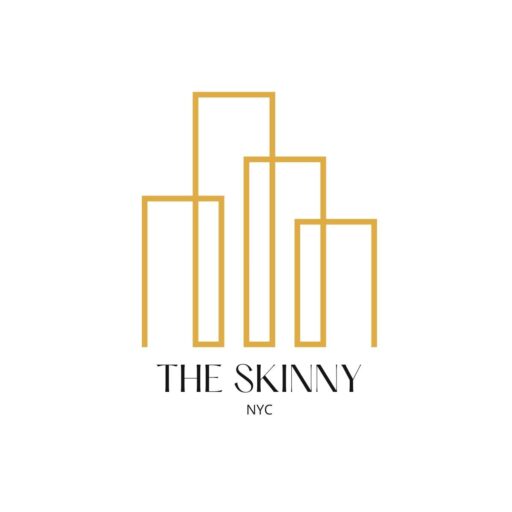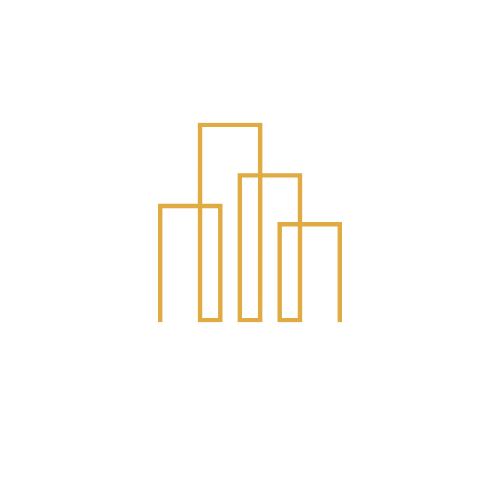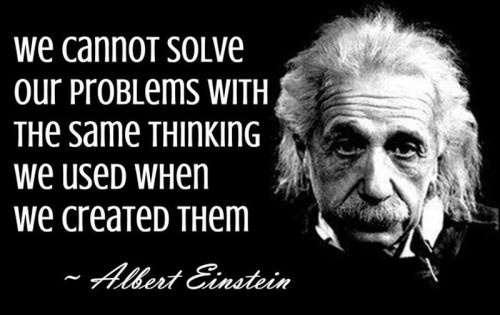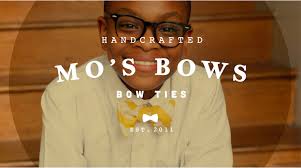
One of the things I love about writing for a blog is the freedom. I have the freedom to express my ideas to a faceless, formless, limitless audience whenever I see fit. That’s a lot of power. Power I think I wield responsibly. That being said, there are some posts (like this one) that I write outside the bounds of responsibility. I write it not because I think you want to read it, but because I think you should read it. There’s a difference. It’s small, and sometimes conventional, but it is there nonetheless. And I acknowledge that. That being said, what I’m writing about today is this: It is my firm belief that the Age of Information is over. It’s been over. What we are in now is best described as the Age of Creativity. And as glorious as that is, it’s not the topic of discussion. The topic of discussion, as Vince Vaugn so eloquently put it in The Internship, is “what comes next!” And what comes next is an Empirical Revolution, an ge of thought long overdue and much in need.
Let me explain:
The age of information ended about four years ago (that’s a ballpark figure, for sanity’s sake).Don’t get me wrong; the Age of Information was a big step in a new direction for the world. Everything changed. Computers exploded onto the scene, and with them came a technological revolution. Not one facet of our life was left untouched. Communication, transportation, medicine, education, economy…all were changed. We made big leaps, and it all stemmed from one single concept: connecting people to one another. For the first time ever people half a world away could communicate with one another in the blink of an eye. In a philosophical sense: the world shrunk to about a one block radius. That’s important to what came next. Because if it weren’t for that shrinkage, that ability to connect with the entire world from your living room, nothing that came next would’ve been possible.

And what did come next? That Age of Creativity as I called it. What does that mean? Well, simply put, history repeats itself. In history, we had the Dark Ages, which gave way to the Renaissance, which gave way to the Industrial Revolution (Though I’m sure there was a gap in the middle). I’m not really sure what the industrial revolution gave way to, but I know it was ugly. Whatever was after it was, as far as I’m concerned, the second Dark Age. Not in reality, because we didn’t move backwards scientifically. But philosophically. The World Wars, the Cold War, the atomic bomb, the arms race…it was backwards as far as humanities are concerned.

The Age of Creativity is a rebirth of art, but in a way we’ve never seen before. This is because technology has fundamentally changed art. The first branch of art to profit from the Age of Information and that connectivity was music. Louis CK once said “There’s a magazine for everyone. If you like dressing up as Hitler of the fourth of July and having a midget throw chocolate pudding at your privates while you shout in German (or something along those lines) there’s a magazine for you!” Of course at the time he was trying to be funny. But there was some truth to it in that when the population is 7 billion, a percentage of a percentage is still many millions of people, and odds are a few million people can all find one specific thing they enjoy. And when they use the internet to shrink the world to about a one block radius, it’s quite easy to get together and enjoy that niche together. And so it is with music, because now literally anyone who wants to make music can do so, and will not find themselves having a hard time supporting themselves on that music, no matter how strange it is, because there are a few million people they can easily get in contact with and share the music with, and sell to them (thanks to the Age of Information).
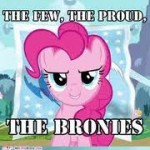
Though music was the trendsetter, with hundreds of new genres and styles popping up daily, the other versions of art soon followed the niche trend. Two examples that immediately come to mind are “Bronies”, grown men who watch the My Little Pony animated series together. I still haven’t delved deep enough into this particular niche to figure out if they do it for the ironic comedy or because there’s actually something about that show that entices the imagination of grown men, but at the end of the day I don’t think it makes a difference. The other, (one you’re probably more familiar with) is the Kickstarter program. There is now a thing that exists where any person or persons who have a genuine idea but no money can explain that idea to the internet, and then ask for donations toward making that idea a reality. Through Kickstarter, hundreds of different ideas have garnered millions in donations, and most of these ideas are renaissance worthy. Books, video games, movies, music albums etc. have all been successful kickstarters. That is Creativity at work, it’s an autonomous worldwide generaion/acceptance/funding of new ideas that do nothing to further the mechanical world, but everything to stimulate the imagination. Just ask Mo, the little boy who’s made a living selling handcrafted bowties, or Tre Melvin, an internet star who does nothing but make funny YouTube videos, and sells merchandise based on those videos. They are a product of the Age of Creativity. And the difference between the Age of Information and the Age of Creativity is the difference between Wikipedia and Tre Melvin’s “This Is a Commentary” success. Shows like Shark Tank and America’s Got Talent, and websites like Etsy and TEDTalks are cogs in the Creativity machine. In this age it is once again widely accepted to be creative, and people can and have made careers off of just that.
And now we’re back to “What comes next?” Quite simply, we’re going to take the best of both the Age of Information and the Age of Creativity and watch them collide in the Empirical Revolution.
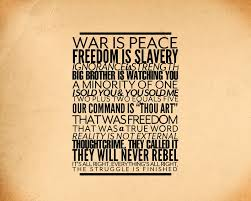
Something about George Orwell’s 1984 sticks with me always: There’s a part in the book where he speaks specifically on points of comparison, and how it affects humans. He said that they could survive quite well on any standard of living, provided they had no point on which to compare their current standard of living. It sticks with me because in a linear sense, the opposite would be that in our current position, with which we have different points of comparison with which to evaluate our standard of living; it would continually shift, and so would everyone else around the world, in comparison to us. What we have then is like a wave, and all we need is one thing to get started on the up and up, and the rest will follow in kind. That’s what’s happening. First to rise is the creativity, and next, steadily picking up with it, is the empirical thought. The Industrial Revolution is to the Renaissance what the Empirical Revolution is to the Age of Creativity. In place of the steam engine, we shall have a rebirth of philosophical thinking and interest in the humanities.
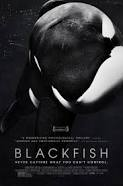
You can already see a little bit of that rolling in now. In 2010 Ken Robinson (one of my personal heroes) opened up his speech with “I’m being told that there is a hunger for videos of me!”**Referring to his wildly popular 2006 speech on revolutionizing education) He is one of the trailblazers of this new age of thinking. He is an example of what is coming. There is a hunger for empirical thinking, and it’s growing every day. As a population, we are beginning to move away from the who and what, and move eagerly toward the how and why of things. No longer are people just doing things because! They want to know why they’re doing them and how what they’re doing is affecting the world. I write a lot of posts on new popular dog breeds (It’s really my bread and butter) and in the last one I mentioned the death of the purebred dog reign. It’s over for them. Realize that this is an institution that has prevailed for centuries. Purebred dogs were all that anyone who was anyone had. And about a decade ago poodles lead the way in hybrid dog breeds. Frowned upon by the veterinary community, these “designer breeds” were new and weird and “only someone as crazy as Paris Hilton would want one”. They were a fad. Or so people thought. But here we are a decade later and hybrid dogs are the thing to own. It’s a very good example of a definite change in societal thinking. Ten years ago the motto was “If it ain’t broke don’t fix it”. Now that’s changed. If it ain’t broke, use it. If it ain’t broke, redefine it. If it ain’t broke, it aint being used enough! The thinking has fundamentally changed from if it’s working then it’s fine to if it’s working then let’s take the best parts of it and create something better. That’s empirical!
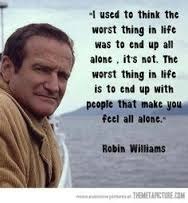
There are other changes too. Like Ken Robinson said: it’s time to revolutionize education. Let’s move away from the linear, and get into the organic. Our politics are becoming empirical: we’re once again focused on the humanities. Gay Rights, Woman’s Rights, race, healthcare, clean energy: all are at the forefront of what Americans are debating. Even the more subtle movements: the death penalty, doctor assisted suicide, immigration and citizenship, obesity, bullying: all humanities. The other day my coworker told me she doesn’t shop st Starbucks because of their inhumane buisness procedures. That’s a person voting with their dollars, boycotting based solely on the way a buisness treats its employees. SeaWorld is facing a similar delimma, with Blackfish exposing the way they treat their whales. It’s a phenomenon nobody was paying attention to a decade ago, that now has the world looking on, judging and thinking. A few day’s ago Robin William passed away. And you know what filled up my Facebook Timeline? Quotes. People sharing inspration in the form of abstract thoughts. The same thing happened with Maya Angelou. Ten years ago, when we didn’t have Facebook, we couldn’t share these quotes. People died and that was the end. Five years ago we could, but we didn’t. Now the first thing we do in remberance of someone is find a quote; a thought that they had that speaks to us, and we pay homage to the thought of them. That’s empirical!
We’re on the cusp of a beautiful horizon. We’ve conquered the technology, we’ve got a man on the moon, we can video chat from half the world away, the atomic bomb is the pinnacle of weaponry. In an age soon to come we’ll focus on the human mind, the philosophy behind who we are. Art, creativity, human rights etc. are going to explode. The Empirical Revolution is once again going to change our entire life.
** Ken Robinson’s 2010 TED Talk:
[youtube]http://www.youtube.com/watch?v=r9LelXa3U_I[/youtube]
